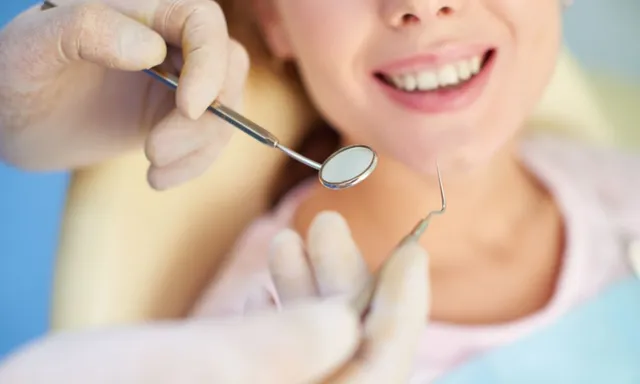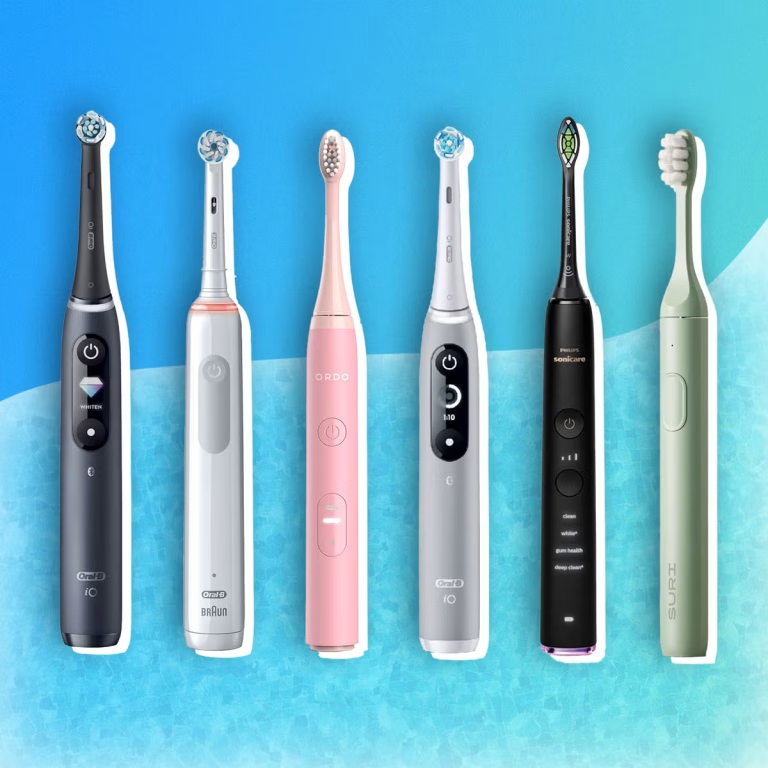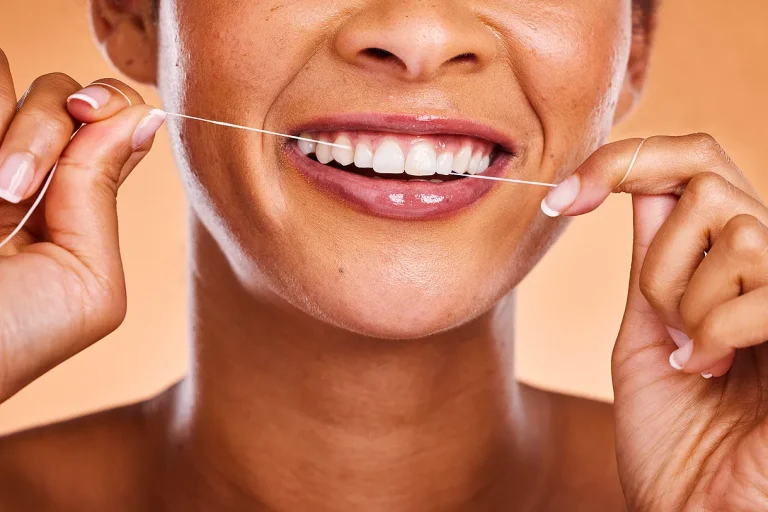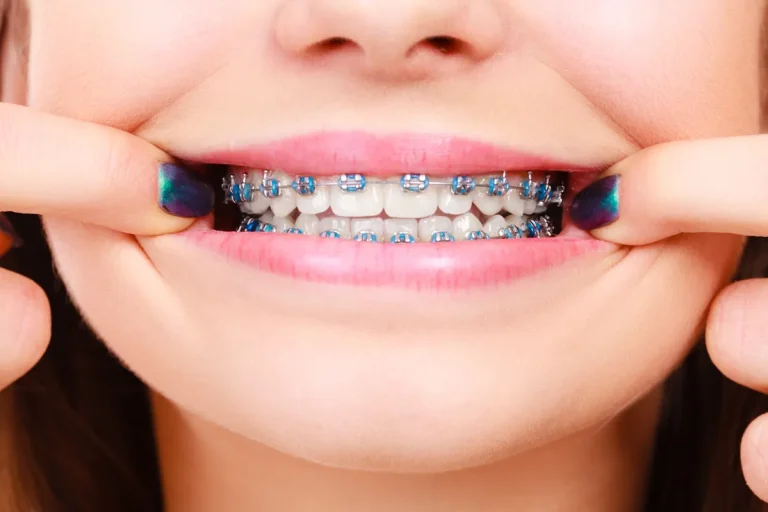Conquering Dental Anxiety: Tips for a Relaxing Visit with Your Dentist
Understanding Dental Anxiety
Dental anxiety, also known as dentophobia or odontophobia, is a common phenomenon experienced by individuals of all ages. It is characterized by an intense fear or unease associated with dental visits, procedures, or even the mere thought of dental treatment. This fear can prevent people from seeking regular dental care, leading to the deterioration of oral health and the development of more complex dental issues. Understanding dental anxiety is crucial for dental professionals as it allows them to provide appropriate care and support to anxious patients. By recognizing the underlying causes, signs, and symptoms of dental anxiety, dental practitioners can implement strategies to help patients feel more comfortable and relaxed during their visits. Additionally, understanding dental anxiety also enables dental professionals to tailor treatment plans and techniques in a way that minimizes stress and maximizes patient satisfaction. Through empathy, education, and the implementation of relaxation techniques, dental professionals can play a pivotal role in alleviating dental anxiety, ultimately improving oral health outcomes for individuals who may otherwise avoid necessary dental care.
The Psychology Behind Dental Fear
Dental anxiety is a common issue, and it can be attributed to various psychological factors. Negative childhood experiences play a significant role in the development of dental anxiety. Traumatic events during dental procedures, such as painful treatments or feeling disregarded by dental professionals, can create long-lasting negative associations with dental visits. These negative experiences may create an intense fear response, leading to anxiety.
Fear of the unknown is another psychological factor contributing to dental anxiety. Many individuals feel apprehensive about dental procedures because they are unfamiliar with what will happen during the appointment. The fear of not knowing the details can intensify anticipation and anxiety, making individuals more reluctant to seek dental care.
Fear of judgment can also heavily impact dental anxiety. Some individuals may be self-conscious about the condition or appearance of their teeth. They worry about being judged, criticized, or embarrassed by dental professionals about their oral health. This fear can lead to avoidance of dental care altogether, as individuals may choose to endure dental problems rather than risk facing judgment.
The impact of these psychological factors on individuals’ anxiety levels is significant. Dental anxiety can have detrimental effects on mental and emotional well-being, resulting in increased stress and avoidance behavior. High anxiety levels may prevent individuals from seeking timely dental care, which can lead to the deterioration of their oral health and exacerbation of dental issues.
What are you afraid of? Recognizing your fear is the first step
Fear is a natural and common human emotion that can have a profound impact on our lives. Often, our fears go unnoticed or unacknowledged, leaving us unable to confront or overcome them. However, recognizing our fears is the vital first step towards facing and conquering them. By understanding the fears that lurk within us, we can gain a sense of clarity and control over our lives, allowing us to grow and thrive. In this article, we will delve into the significance of recognizing our fears and explore the benefits that come with this self-realization. By acknowledging our fears, we can unlock the door to personal growth and embark on a journey towards living a life that is unhampered by anxiety and apprehension.
1. Pain
Modern-day dental techniques and treatments have made significant advancements in terms of pain management and patient comfort. Gone are the days of excruciating tooth extractions and nerve-wracking root canals. Today, dental care has become less invasive, providing patients with a much more comfortable experience.
One of the major reasons for the improved comfort is the introduction of advanced dental techniques. Dentists now use minimally invasive procedures that require smaller incisions, resulting in reduced pain and faster recovery times. For example, laser dentistry has revolutionized many procedures, such as cavity treatment and gum disease therapy. Lasers are precise and gentle, reducing the need for traditional drilling and increasing patient comfort.
Additionally, advancements in dental treatment techniques have led to the development of new anesthetics and pain management options. Dentists now have access to better local anesthesia, ensuring that patients feel little to no pain during procedures. Furthermore, conscious sedation is widely used in dental offices, allowing patients to relax and experience minimal discomfort or anxiety.
It is important to note that a good dentist always prioritizes patient comfort. They take the time to explain procedures thoroughly, ensuring patients are aware of what to expect. They also actively listen to any concerns or fears their patients may have, making the necessary accommodations to provide a comfortable experience.
In conclusion, modern dental techniques and treatments have greatly reduced the pain and discomfort associated with dental care. Through minimally invasive procedures, advanced pain management options, and patient-centered care, dentists strive to make each visit as comfortable as possible for their patients.
2. Loss of control & fear of the unknown
Dental offices employ various strategies and solutions to address the common fear of loss of control and the unknown that many patients experience. To help alleviate this fear, dental offices provide amenities such as eye masks, blankets, and headphones to help patients relax during their visit. These items are intended to create a sense of comfort and familiarity, reducing anxiety and promoting a sense of control.
Moreover, detailed explanations of the treatment procedure are offered to patients to alleviate their anxieties about the unknown. By discussing the various steps involved in the treatment, dental professionals aim to provide patients with a clear understanding of what to expect, ensuring that they feel informed and empowered throughout the process.
In addition to these measures, dental offices implement various techniques to further enhance patient comfort. This may include creating a calm and soothing environment, playing relaxing music, or offering aromatherapy. By creating a welcoming atmosphere, dental offices aim to create a sense of ease and relaxation for patients.
Overall, dental offices strive to provide comfort measures and solutions that address patients’ fear of loss of control and the unknown. By offering amenities, providing detailed treatment explanations, and creating a comfortable environment, dental professionals aim to make the dental visit a more pleasant and anxiety-free experience for their patients.
3. Embarrassment about dental health
Embarrassment about dental health can be a significant component of dental anxiety, impacting both dental health and overall well-being. When individuals feel embarrassed about their dental health, they may avoid seeking proper dental care, leading to the worsening of oral health problems.
Poor oral health not only affects the teeth and gums but also has a direct link to systemic health conditions. Neglecting dental health can increase the risk of developing conditions such as cardiovascular disease, respiratory infections, diabetes, and even certain cancers. By neglecting dental care due to embarrassment, individuals put themselves at a higher risk of encountering these systemic health issues.
Moreover, embarrassment about dental health can also have negative effects on mental health. It can lead to self-esteem issues, social anxiety, and avoidance of social situations that may involve smiling or speaking openly. These negative emotions and avoidance behaviors can significantly impact an individual’s mental well-being, leading to feelings of isolation, depression, and low self-confidence.
It is crucial to address the issue of embarrassment surrounding dental health to ensure that individuals receive the necessary dental care they need. By addressing dental anxiety and providing a supportive and non-judgmental environment for patients, dental healthcare professionals can help individuals overcome their embarrassment and improve their oral health. This, in turn, will positively impact their overall well-being, prevent systemic health conditions, and promote better mental health.
4. Bad experience in the past
A bad dental experience in the past can have a profound impact on a person’s overall dental health and well-being. It can instill a sense of fear and anxiety, making future dental visits a daunting task. However, there are several ways to address and overcome dental anxiety.
Firstly, it is crucial to communicate your fears and previous bad experience with your dentist. Openly discussing your concerns will help the dentist better understand your needs and tailor the treatment accordingly. Many dentists are trained to deal with dental anxiety and can provide techniques such as distraction techniques, conscious sedation, or gentle dentistry to help ease your worries and create a comfortable environment.
Building trust is essential in overcoming dental anxiety. Finding an honest and trustworthy dentist who prioritizes patient comfort and respect is vital. Look for dentists who have a good track record and positive reviews from other patients. A reliable dentist will take the time to listen to your concerns, explain procedures in detail, and involve you in the decision-making process. Additionally, they will ensure that you feel comfortable and supported throughout the treatment.
In conclusion, a bad dental experience can leave lasting effects and create dental anxiety. However, addressing the fears and finding an honest and trustworthy dentist who prioritizes patient comfort can help overcome these anxieties. Remember that good communication, trust-building, and seeking appropriate dental support are essential steps towards a positive dental experience.
– Other common triggers for dental anxiety
Dental anxiety is a common issue that many individuals face when it comes to visiting the dentist. Understanding the triggers for dental anxiety and learning how to address them can help individuals manage their fears and receive the necessary dental care they need.
One common trigger for dental anxiety is the sound of dental instruments. The high-pitched whirring of a drill or the buzzing sound of a scaler can be unsettling for many individuals. To address this trigger, individuals can request earplugs or headphones with calming music during their dental procedures. This can help drown out the noise and create a more relaxed environment.
Another trigger for dental anxiety is the smell of dental materials. The scent of dental materials can be overwhelming and remind individuals of previous unpleasant dental experiences. To address this trigger, individuals can bring their own scented lip balm or essential oils to mask the smell. Additionally, having open communication with the dentist and dental staff about any specific smells that cause anxiety can help them accommodate the individual’s needs.
In conclusion, common triggers for dental anxiety include the sound of dental instruments, the smell of dental materials, and fear of judgment from the dentist. By addressing these triggers through the use of earplugs or headphones, scented lip balm or essential oils, and finding a dentist who is understanding and compassionate, individuals can better manage their dental anxiety and receive the dental care they need.
– Negative effects of avoiding dental visits
Avoiding dental visits can lead to several negative consequences that can have a significant impact on one’s oral health. Firstly, dental problems such as tooth infections and gum disease can escalate if left untreated. What may initially start as a small dental issue, such as a minor toothache or bleeding gums, can progress into more serious problems if not addressed timely. Tooth infections can spread to the surrounding tissues, causing swelling, severe pain, and even the loss of the affected tooth. Similarly, gum disease, when ignored, can progress to periodontitis, a more severe form that can result in irreversible damage to the gums and bone supporting the teeth.
Furthermore, avoiding dental visits can also lead to the accumulation of plaque and tartar, which can contribute to tooth decay and cavities. Plaque is a sticky film of bacteria that forms on the teeth, and if not removed regularly, it hardens and becomes tartar. The presence of tartar makes it more difficult to maintain good oral hygiene and increases the risk of developing cavities.
Apart from the physical consequences, avoiding dental visits can also have psychological implications. Dental anxiety, a common fear of dental procedures, can lead to avoidance of dental visits altogether. This fear can stem from previous negative experiences or a general fear of dental treatments. Dental anxiety can cause individuals to delay necessary dental care, leading to worsening oral health conditions. It can also result in increased stress, anxiety, and embarrassment, negatively affecting one’s overall well-being.
In conclusion, avoiding dental visits can have detrimental effects on oral health. Neglected dental problems can escalate, leading to tooth infections, gum disease, and irreversible damage. Additionally, dental anxiety can further contribute to avoidance, causing psychological distress. Regular dental visits are imperative for maintaining good oral health and preventing potential complications.
– Creating a positive experience at the dentist
Visiting the dentist can often be an anxiety-inducing experience for many individuals. However, by implementing certain strategies and techniques, it is possible to create a positive and comfortable environment for patients. This article will explore various ways to ensure a positive experience at the dentist, including effective communication, pain management techniques, creating a calming atmosphere, and promoting trust and rapport between patients and dental professionals. By prioritizing these elements, dental visits can become less daunting and instead be seen as an opportunity for dental care, education, and maintenance in a welcoming and relaxed setting.
Preparing for Your Dental Appointment
Preparing for your dental appointment is crucial in reducing anxiety and ensuring a stress-free experience. By following a few strategies, such as scheduling appointments during relaxed times, avoiding rushing, bringing a support person, and informing dental staff about your anxiety, you can significantly alleviate your fears.
Scheduling your dental appointments during relaxed times can make a significant difference in reducing anxiety. By choosing a time when you are not hurried or stressed, you can take the necessary time to prepare mentally and physically. This will allow you to approach the appointment with a calmer mindset.
Avoiding rushing is equally important. Arriving early to your dental appointment will give you time to acclimate to the environment and relax. Rushing can increase your anxiety levels and make you feel more apprehensive about the procedures.
Informing dental staff about your anxiety is vital. Dental professionals are trained to handle anxious patients and can provide additional support and care. By sharing your concerns and fears, they can tailor the appointment to your needs and employ strategies to alleviate your anxiety.
In conclusion, preparing for your dental appointment is essential in reducing anxiety. Scheduling during relaxed times, avoiding rushing, bringing a support person, and informing dental staff are effective strategies to ensure a more relaxed and comfortable dental experience. Remember, open communication with your dentist and dental staff is key to addressing any anxiety you may have.
– Scheduling an appointment at a time when you feel least anxious
Scheduling dental appointments at a time when you feel least anxious is of utmost importance. The background information emphasizes the significance of considering personal anxiety levels when making these appointments. By doing so, it is possible to greatly reduce anxiety and make the visit to the dentist more manageable.
Anxiety surrounding dental visits is a common occurrence for many individuals. The thought of sitting in the dentist’s chair, the unfamiliar sounds and smells, and the fear of potential pain can all contribute to heightened anxiety levels. However, scheduling appointments at a time when you feel least anxious can counteract these concerns.
When we are in a state of calmness and relaxation, our body and mind are better equipped to handle stressful situations. By choosing a time when you feel least anxious, you are setting yourself up for a more positive dental experience. Your anxiety levels are likely to be lower, and you will be able to approach the visit with a clearer mindset.
Reducing anxiety during dental appointments has several benefits. It allows the dentist to perform their duties more efficiently as you are likely to be more cooperative and relaxed. Additionally, it can help to build a harmonious relationship between you and your dentist, fostering a positive dental experience overall.
In conclusion, scheduling dental appointments at a time when you feel least anxious is crucial. It can significantly reduce anxiety levels, making the visit more bearable and even enjoyable. By prioritizing your mental well-being during these appointments, you can better care for your oral health and maintain a positive outlook towards dental care.
Relaxation Techniques to Try Before Your Appointment
Before attending your appointment, it is essential to find ways to relax and calm your mind. Relaxation techniques can help reduce nervousness, anxiety, and tension, allowing you to prepare mentally and physically before your appointment. By implementing these techniques, you can create a tranquil state of mind, enabling you to approach your appointment with a clear and focused mindset. we will explore various relaxation techniques that you can try before your appointment, offering you the chance to unwind, alleviate stress, and enhance overall well-being. Whether you are going for a medical check-up, a job interview, or an important meeting, these techniques can help you feel more at ease and make the most out of your appointment. So, let’s discover the methods that will help you relax and prepare for your upcoming appointment.
– Visualization techniques to calm your nerves
Dental anxiety is a common issue that many people face when visiting the dentist. The fear of dental procedures can cause significant distress and may even deter individuals from seeking necessary dental care. However, visualization techniques can be a powerful tool in calming dental anxiety and promoting a more relaxing experience during dental visits.
One effective visualization technique involves imagining tranquil and positive scenarios. By closing your eyes and picturing yourself in a peaceful place, such as a beautiful beach or a serene forest, you can redirect your focus away from the dental chair. Visualization allows you to create a mental oasis where you feel safe and calm, helping to reduce anxiety and promote relaxation.
To enhance this technique, you can engage multiple senses during visualization. For instance, you can imagine the sound of gentle waves crashing against the shore or the smell of fresh pine trees. By incorporating these sensory details, your visualization becomes more vivid and immersive, further aiding in relaxation.
Another visualization technique involves picturing successful outcomes of dental procedures. Envision yourself leaving the dentist’s office feeling relieved and proud of overcoming your dental anxiety. Visualize images of healthy teeth and gums to build confidence and positive associations with dental visits.
In summary, visualization techniques offer a powerful way to calm dental anxiety and create a more peaceful experience during dental visits. By visualizing serene scenarios and positive outcomes, individuals can reduce their anxiety and approach dental procedures with a greater sense of calmness and confidence.
6 more tricks for overcoming your dental anxiety
Dental anxiety can be a daunting obstacle for many individuals seeking dental care. However, there are various effective strategies that can help overcome this fear and ensure a positive dental experience. In addition to the conventional methods of desensitization and deep breathing, implementing additional tricks can further alleviate dental anxiety. Let us explore six more effective techniques for overcoming dental phobia.
1. Find the right dentist
When it comes to dental care, finding the right dentist is crucial, especially for individuals who experience anxiety or fear related to dental visits. Selecting a dentist who specializes in treating anxious patients and creates a comfortable environment is of utmost importance.
Anxiety related to dental visits can be a significant barrier to maintaining good oral health. Therefore, finding a dentist who understands and caters to the needs of anxious patients is essential. Such specialized dentists often have additional training and experience in managing dental anxiety, allowing them to provide a more calming and relaxed dental experience. This can help alleviate the fear and stress associated with dental procedures, making it easier for anxious patients to receive the required care.
Additionally, factors such as location, hours of operation, and available amenities contribute to creating a welcoming atmosphere for patients. A conveniently located dental office allows easy access and reduces travel-related stress, which can be particularly beneficial for anxious patients who may already feel uneasy about their visit. Furthermore, flexible hours of operation accommodate individuals’ busy schedules, making it easier to prioritize dental care.
Having available amenities, such as a soothing waiting area, pleasant background music, or even options for sedation dentistry, can make a significant difference in promoting comfort and relaxation. These features contribute to a friendly and comforting environment, helping anxious patients feel at ease during their dental appointments.
In conclusion, finding a dentist who specializes in treating anxious patients and creates a comfortable environment is crucial. Taking into account factors such as location, hours of operation, and available amenities can contribute to a welcoming atmosphere, further enhancing the overall dental experience for anxious patients.
2. – Deep breathing exercises to reduce stress levels
When it comes to dental appointments, many people experience high levels of stress and anxiety. The thought of dental procedures can be overwhelming, making it difficult to enter the dental office with a calm and relaxed mindset. However, there is a simple and effective way to reduce these stress levels – deep breathing exercises.
Finding a quiet and comfortable place to sit is crucial for deep breathing exercises. This can be done in the waiting room before the appointment or even in the dental chair before the procedure begins. Taking slow and deep breaths in through the nose and out through the mouth helps to activate the body’s relaxation response, counteracting the stress response.
Focusing on each breath and visualizing tension leaving the body is another beneficial aspect of deep breathing exercises. By directing attention to the breath, individuals can detach from their anxious thoughts and redirect their focus to the present moment. Visualizing tension leaving the body further enhances a sense of relaxation and calmness.
Research has shown that deep breathing exercises can significantly reduce stress levels. They have been found to lower heart rate, blood pressure, and cortisol levels – all markers of stress. By incorporating deep breathing exercises into dental appointments, patients can experience a greater sense of calm and comfort, making their visit more pleasant.
In conclusion, deep breathing exercises are a powerful tool for stress reduction during dental appointments. By finding a quiet and comfortable place, taking slow and deep breaths, and visualizing tension leaving the body, individuals can effectively manage their stress levels. By incorporating these techniques, dental professionals can create a more relaxing and comfortable experience for their patients.
3- Bringing a trusted friend or family member for support
Bringing a trusted friend or family member for support during dental appointments is of utmost importance. Dental procedures can be anxiety-inducing for some individuals, and having a familiar face by one’s side can provide immense comfort and encouragement.
The role of a supportive companion during dental appointments cannot be overstated. Firstly, they offer emotional support. Dental visits can trigger various emotions, from fear and apprehension to vulnerability. Having someone present who understands these emotions and is willing to provide reassurance can significantly alleviate the patient’s stress. Just knowing that someone cares and empathizes with their worries can make a world of difference.
Furthermore, a supportive companion should possess the ability to remain calm. Dental situations can sometimes be challenging, and the patient may exhibit signs of distress or discomfort. A calm companion can help create a sense of stability and tranquility, helping the patient relax.
Understanding the writer’s worries is another essential quality of a supportive companion. Each individual has their own unique dental fears and concerns. A companion who takes the time to listen, validate, and acknowledge these worries can help the patient feel understood and validated.
In conclusion, having a trusted friend or family member accompany someone to dental appointments has numerous benefits. They provide emotional support, offer comfort and encouragement, remain calm, and understand the writer’s worries. Their presence can make dental visits more manageable and less daunting, ultimately leading to better overall dental health.
4. Arrive early
Arriving early for an appointment offers a multitude of benefits that can significantly enhance your overall experience. One of the primary advantages of arriving early is the reduced stress it can bring. Rushing to an appointment can cause unnecessary anxiety and tension, while arriving early allows you to calmly prepare yourself mentally, ensuring a more relaxed state of mind.
Moreover, arriving early gives you the opportunity to engage with the front desk staff. Interacting with the staff can help establish a positive rapport and create a welcoming atmosphere. It allows you to familiarize yourself with the surroundings, ask any questions you may have, and provide any necessary information in a leisurely manner. This can be particularly beneficial if it is your first visit, as it allows you to gather all the necessary information and gain a deeper understanding of the company or service you are engaging with.
To fully enjoy these benefits, it is crucial to plan enough time before your appointment. Arriving with sufficient time ensures that you have the opportunity to relax, settle into the environment, and possibly even enjoy the amenities provided in the lobby. Planning ahead also allows for any unexpected circumstances that may arise, preventing any unnecessary rush or stress.
In conclusion, arriving early for an appointment not only reduces stress but also provides the chance to engage with staff and enjoy the environment. It is important to plan enough time to fully relish in these benefits and start your appointment on a positive note.
5- Communicating with your dentist about your fears
When it comes to dental anxiety, I have several fears and concerns that I would like to communicate with my dentist. Firstly, the fear of experiencing pain during dental procedures is a major concern for me. The anticipation of any discomfort intensifies my anxiety, making me hesitate to schedule regular check-ups.
Furthermore, the general fear of needles and injections adds to my dental anxiety. The thought of a needle piercing my gums or the roof of my mouth creates a feeling of panic, even before the procedure begins. This fear often leads me to delay necessary treatments, which I understand is detrimental to my oral health.
In addition, I have had a few negative experiences during previous dental visits that have contributed to my anxieties. These experiences include insensitive or dismissive behavior from dental professionals, causing me to feel invalidated and unheard. I believe it is crucial for my dentist to be aware of these past encounters to ensure a more positive and comfortable experience moving forward.
Overall, communicating my fears and concerns about dental anxiety to my dentist will help establish a trusting and empathetic relationship. By addressing specific triggers such as the fear of pain and needles, as well as sharing my negative experiences from previous visits, I hope to work collaboratively with my dentist to alleviate my dental anxiety and prioritize my oral health.
6. Ask lots of questions
Asking lots of questions during a dental appointment is of paramount importance as it helps address concerns, reduces anxiety, and ensures comfort for the patient. Dental visits can be a source of fear and anxiety for many individuals, but by actively engaging in discussions and seeking clarifications, patients can alleviate their worries and gain a sense of control.
One of the crucial aspects of asking questions is that it allows patients to express their concerns. Dental teams are aware that every patient is unique, and everyone may have different anxieties or fears associated with dental procedures. When patients openly discuss their concerns, the dental team can address them promptly and create a customized treatment plan to suit the patient’s needs.
Furthermore, asking questions can help reduce anxiety. By gaining a better understanding of the procedures or treatments involved, patients often feel more at ease and less anxious. It gives them a clearer picture of what to expect and helps dispel any misconceptions or exaggerated fears they may have.
It is important to emphasize that dental teams are there to help and will gladly provide explanations or clarifications. Dentists and dental professionals are highly skilled and knowledgeable in their field and can offer valuable insights to patients. By answering questions and providing explanations, dental teams develop trust and foster a positive patient-provider relationship.
In conclusion, patients should feel empowered to ask as many questions as they need during a dental appointment. By doing so, they can address concerns, reduce anxiety, and ensure their comfort. Dental teams are committed to helping patients and will provide explanations or clarifications to facilitate a positive dental experience.







